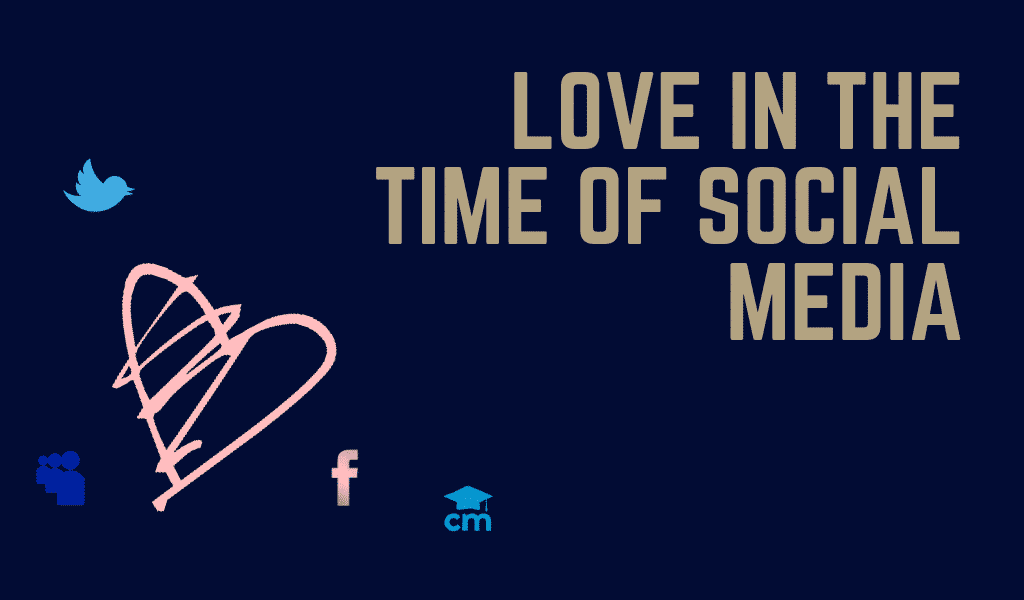Get this: A 2013 study showed that over a third of marriages in America between 2005 and 2012 started online, mostly through dating sites like OKCupid and Match.com. This tells us that people no longer find online dating as creepy and unrealistic as when it was launched in the 1990s. However, there is a significant shift in recent years: From dating sites to social media sites. It turns out Facebook marketing isn’t only for products and brands.
A more recent study entitled “First Comes Social Networking, Then Comes Marriage?” revealed that around 21% of married couples who met online started through social networking sites. This percentage is about the same as the percentage of couples who met offline through school. Jeff Hall, the author of the study from the University of Kansas, said that he was surprised that this shift happened without “anyone researching it, without anyone even paying attention to it.”
In Hall’s study, several of the married couples met through new social media sites like Classmates.com and Myspace, before Facebook and Twitter exploded. This makes Hall think that there are still bigger waves of marriages to come, with the boom of social media and the fact that the whole friendship-dating-marriage process can take several years.
Online dating sites vs. social networking sites
The movement of online dating to social media doesn’t necessarily mean the end of dating sites like Match.com and OKCupid though. In fact, analysts believe that there is room for so many players in the dating services industry because it is worth about $3 billion.
However, there are notable differences between online dating sites and social networking sites that experts and people who found and are looking for love online are pointing out.
- Social networking sites are free: While dating sites will cost you around $6 to as much as $25 per month for paid plans, social networking sites are completely free. Social media sites are primarily used for several reasons other than dating, and their income comes from ads revenue, rather than subscription costs.
- Social networks connect people with similar interests: Facebook and Twitter algorithms work by suggesting to users people that are within the same alumni group, sports group, or any targeted group. They can also recommend people who like the same pages as you. There’s definitely a good chance that the people you meet on social media share the same interests as you, or that you already belong to the same social circle.
- Online dating sites offer limited options: A Pew study says that 54% of people on online dating sites are suspicious of the authenticity of the profile owners. They only put out what they want you to think of them, and you base your decision on that profile and the photo attached to it. It’s limiting, and even misleading.
- Social networking sites offer a look into your life: Social media profiles reveal clues about the real personality of the user as shown in the articles they share, how they interact with friends, the images they upload, and the words they use in every post or comment. Dating sites don’t have these details.
Many people, therefore, prefer social media sites in looking for partners, but there are still those who go the “old-fashioned” way and sign up for dating sites. As experts said, the dating industry is large enough for multiple dating platforms.
Woes of online romance
Finding love online is as complicated as finding love offline, perhaps even more so. For one, people who flirt on social media should be comfortable doing so in the public eye. Your friends and the other person’s friends can see your comments and replies to each other and can join in. They can even take a screenshot of the whole thread just for the heck of it.
Two studies conducted by Russell Clayton, a researcher at the University of Missouri, also reveals that heavy use of Facebook and Twitter often lead to jealousy. According to one of the studies, heavy use of these social networking sites could mean that the person is:
- Indirectly neglecting their partner.
- Directly neglecting their partner by still communicating with exes.
- Constantly monitoring their partner.
All these can lead to conflict in the relationship and also result in Facebook-related jealousy. Furthermore, constant use of social media when in a relationship can lead to temptation for physical and emotional cheating.
All these can lead to conflict in the relationship and also result in Facebook-related jealousy. Furthermore, constant use of social media when in a relationship can lead to temptation for physical and emotional cheating.
